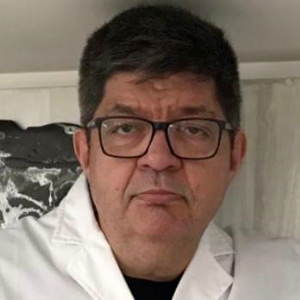Title : Bacillus subtilis natto: A next-generation probiotic with positive implications in immunological, metabolic, and neurological health
Abstract:
Spore-forming probiotic bacteria offer interesting properties as they have an intrinsic high shelf stability, and when consumed, they are able to survive to the harsh conditions imposed during the transit thorough the host gastrointestinal (GI) tract. One of these probiotic is Bacillus subtilis natto DG101 isolated from the traditional Japanize food Natto. This probiotic is linked to many beneficial health effects, including the prevention of high blood pressure, osteoporosis, and cardiovascular-associated disease. B. subtilis DG101 was non-hemolytic, showed high tolerance to lysozyme, low pH and bile salts, and strong adherence ability to extracellular matrix proteins (i.e., fibronectin and collagen), pointing out its proficiency for competitive exclusion of pathogen adherence. B. subtilis DG101 forms robust liquid and solid biofilms and express several extracellular enzymes with activity against food diet-associated macromolecules (i.e., proteins, lipids, and polysaccharides) that are important to improve food diet digestion and metabolism by host. B. subtilis DG101 was able to grow in the presence of toxic metals (i.e., chromium, cadmium, and arsenic) and decreased their bioavailability, a feature that points to this probiotic as an interesting agent for bioremediation in cases of food and water poisoning with metals. In addition, B. subtilis DG101 was sensitive to antibiotics commonly used to treat infections in medical setting, and at the same time shows a potent antimicrobial effect against pathogenic bacteria and fungi. In mammalians (i.e., rats and mice), B. subtilis DG101 colonized the GI tract, and improve the lipid and protein serum homeostasis of animals fed on the base of a normal-, a high fat- (obesity model) or deficient-diet regime (dietary restriction). In the animal model for longevity and neuroprotective studies, Caenorhabditis elegans, B. subtilis DG101 significantly increased the animal healthy lifespan in ~35% to ~55%, and prevent its age-related behavioral neuro decay. In the case of Parkinson’s disease (PD) a hallmark of the disease is oxidative injury to dopaminergic neurons in the substantia nigra pars compacta. C. elegans colonized by B. subtilis DG101 was resistant to oxidative injury of dopaminergic neurons caused by treatment with the neurotoxin 6-hydroxydopamine (6-OHDA). Life expectancy was longer and dopaminergic neurons were more strongly protected in B. subtilis DG101-colonized C. elegans dat-1p::CAT-2 worms, which exhibit early dopaminergic decay because of accelerated oxidative damage. In the case of Alzherimer’s Disease (AD), B. subtilis DG101 alleviated the AD-related paralysis phenotype of the transgenic C. elegans strains that express the toxic Aβ3-42 and Aβ1-42 peptides. B. subtilis DG101-colonized worms were protected from the behavioural deficits produced by pan-neuronal Aβ1-42 expression. The neuroprotective effects of B. subtilis DG101 were produced by downregulation and activation of the aging-related insulin-ILS/IGF1/FOXO and stress response-related p38MAPK/Nrf2 signalling routes, respectively. Importantly, in human beings the consume of B. subtilis DG101, incorporated in different types of foods and beverages, significantly improved the levels of glycemia, glycosylated haemoglobin, insulin, serum lipids, body weight, body mass index and intestinal wellness.




